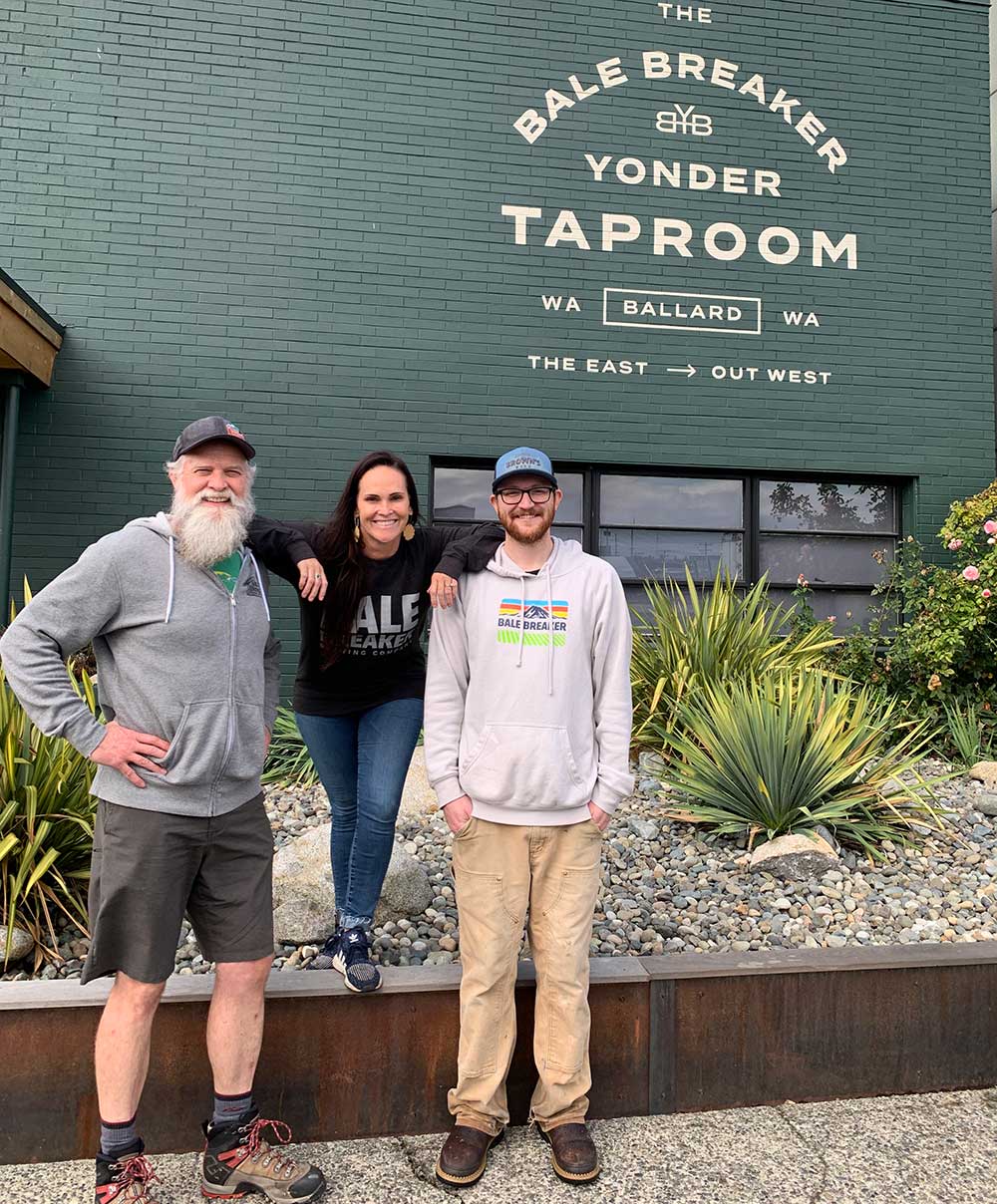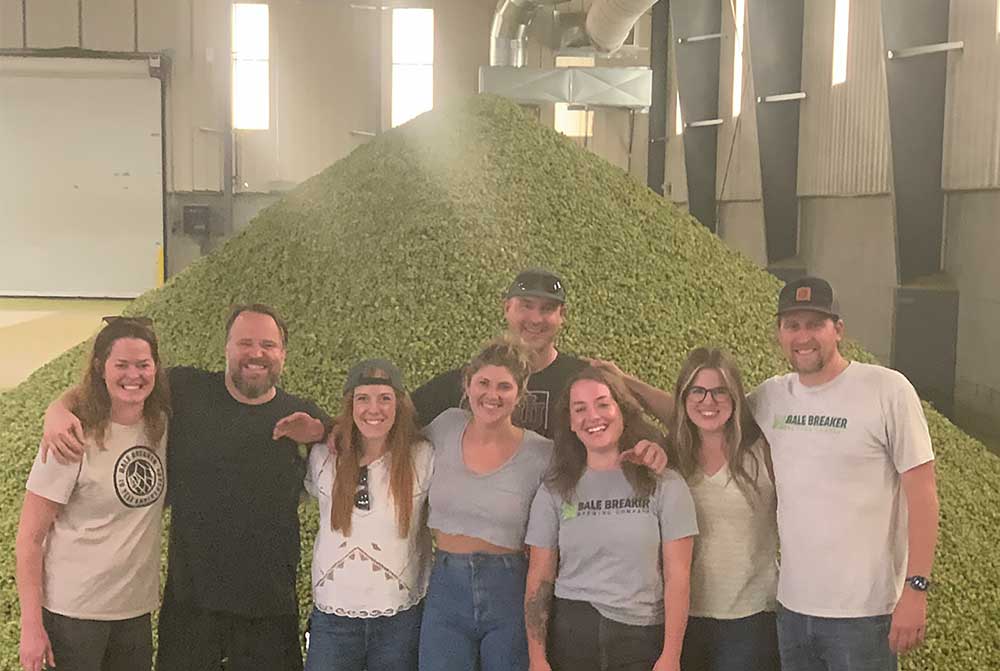
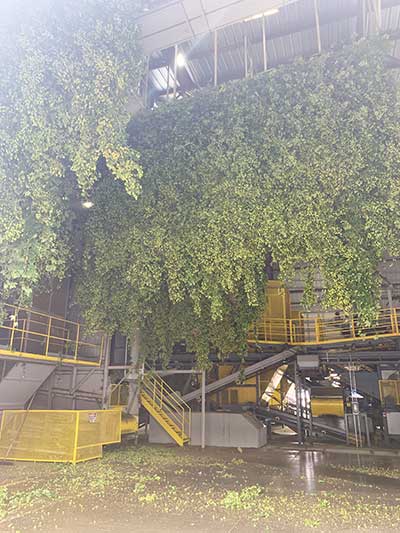
Bale Breaker brews Peaks and Pints 7th house beer, TrailBreaker IPA
After Peaks & Pints brewed our house beer at Bale Breaker Brewing this month, we asked them if we could name it TrailBreaker IPA — not because our building’s circuit breakers have been an issue since we opened Nov. 1, 2016, not because their family farm and brewery was on explorers Lewis and Clark’s pathway to the Pacific Ocean, and not because the beer’s name rhymes with Bale Breaker (OK, maybe a little), but rather because owners Patrick Smith, Meghann Quinn, Kevin “Smitty” Smith, and Kevin Quinn and their ancestors are trailbreakers. The name trailbreaker is meant to translate to “pioneers, or leaders on a path.”
Like many families in the 1920s, trailbreakers B.T. and Leota Loftus traveled to Moxee, Washington, in pursuit of work on the railroad, but instead began farming a variety of crops and livestock. Knowing the end of Prohibition was near, they saw a chance to be trailbreakers on an emerging industry and established the family’s hop farm on five acres in 1932. As a primary ingredient in all beer, hops provide the bitter flavor needed in beers to offset the sweet taste. In addition, many beers use hops late in the brewing process to provide flavor profiles ranging from citrus to piney, depending on the variety of hops. The Yakima Valley produces 75-percent of the hops used in the United States. Today, Loftus Ranches is owned and operated by third generation hop growers Mike and Cheryl (Hanses) Smith. After B.T. passed in in 1974, Mike dropped out of college and helped his mother farm the hops, and never left. The fourth generation of the family to grow hops is represented by their oldest son, Patrick, who joined the business in 2009. Loftus Ranches is one of the largest growers for the craft beer industry, valuing quality, sustainability, and innovation.
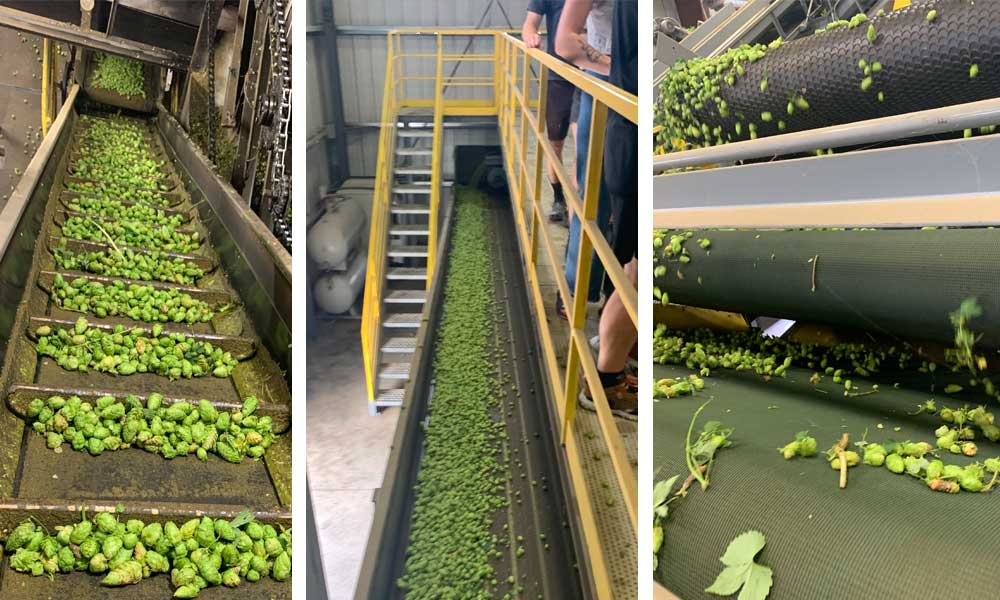 Even though he played in the hop farms as a kid, Patrick Smith, like his siblings Meghann and Kevin, weren’t always so sure that they’d make a career out of hops and beer — or even live in the Yakima Valley. After high school, they all wanted something different than their small-town upbringings. Patrick graduated from the University of Washington first and his siblings followed. With degrees in business and geography, the Smith kids settled in Seattle. Meghann and her husband, Kevin Quinn, whom she met her freshman year at UW, eventually moved to Coeur D’Alene, Idaho, Patrick continued his education grabbing a Master of Science in Agricultural Economics from Purdue University, Master of Business Administration from Indiana University, and a M.S. in Business Analytics from the Stern School of Business at New York University before returning to help his parents operate Loftus Ranches.
Even though he played in the hop farms as a kid, Patrick Smith, like his siblings Meghann and Kevin, weren’t always so sure that they’d make a career out of hops and beer — or even live in the Yakima Valley. After high school, they all wanted something different than their small-town upbringings. Patrick graduated from the University of Washington first and his siblings followed. With degrees in business and geography, the Smith kids settled in Seattle. Meghann and her husband, Kevin Quinn, whom she met her freshman year at UW, eventually moved to Coeur D’Alene, Idaho, Patrick continued his education grabbing a Master of Science in Agricultural Economics from Purdue University, Master of Business Administration from Indiana University, and a M.S. in Business Analytics from the Stern School of Business at New York University before returning to help his parents operate Loftus Ranches.
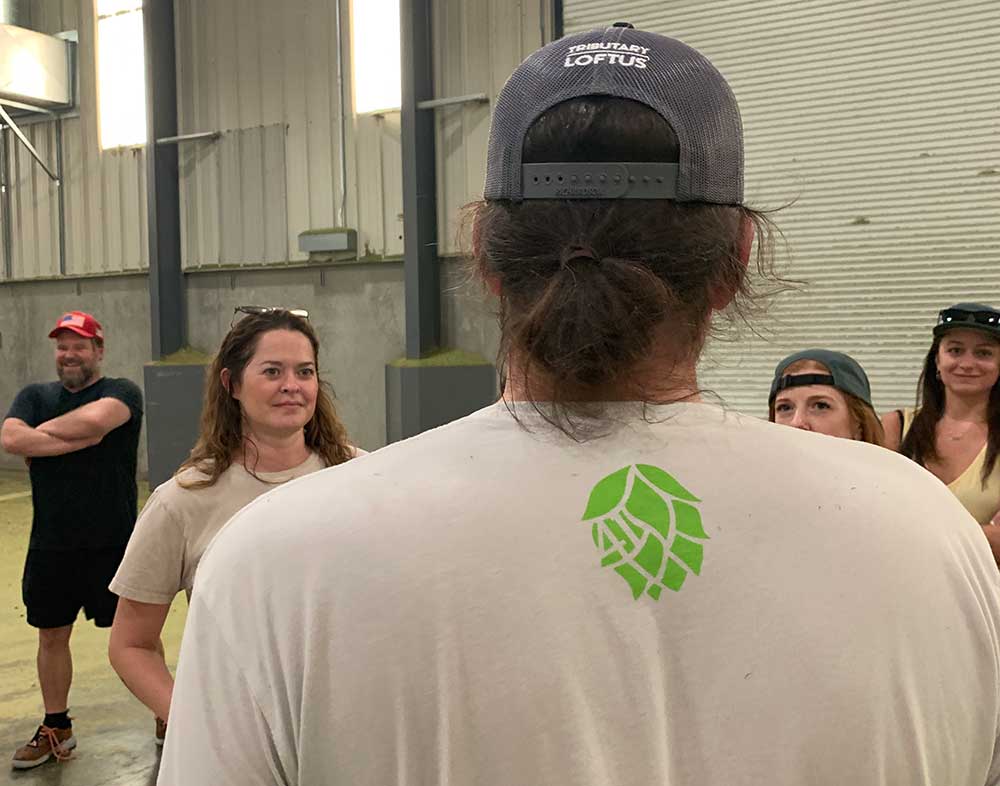
In Patrick’s pocket was his MBA thesis project. Being from a trailbreaker family, he believed he could break into the rising craft beer industry by parlaying his family’s hop farm success into a successful brewery taking advantage of Loftus Ranches’ strong financial position, it’s hop acreage, and mirroring the rising farm-to-table, locally sourced concept the Yakima Valley had in spades. Since Kevin Smith left his garage brewery and cellared and brewed at Two Beers Brewing, Meghann has a degree in finance and managed a winery in Idaho makes her an ideal, and Kevin Quinn knew his way around a sales strategy after developing The Pita Pit restaurant franchises, they plowed three acres of Loftus’ Hop Field #41, built a brewery on it, and, in 2013, opened Bale Breaker Brewing — named after the bales that hops are placed into for storage and shipping. Instead of sending the hops off as a bale, Meghann, Quinn and Smitty, for the first time in family history, would be breaking them right on site to go from farm to glass. Thus, they became bale breakers, and the name for the brewery was born.
Loftus family hops into an entirely new business venture. In the end, Team Smith & Quinn couldn’t shake the aromas, lupulin, and bines that helped raised them. With trailbreaker DNA, family values, and shared passions, Bale Breaker Brewing has grown into the fifth largest brewery, an estate brewery nonetheless, in the state with a 30-barrel brewhouse in a 27,000 square foot facility In Moxee, a 7.5-barrel brewhouse and taproom, shared with Yonder Cider, in Seattle’s Ballard Brewing District, and a new beer, TrailBreaker IPA, found exclusively at Peaks & Pints in Tacoma’s Proctor District.
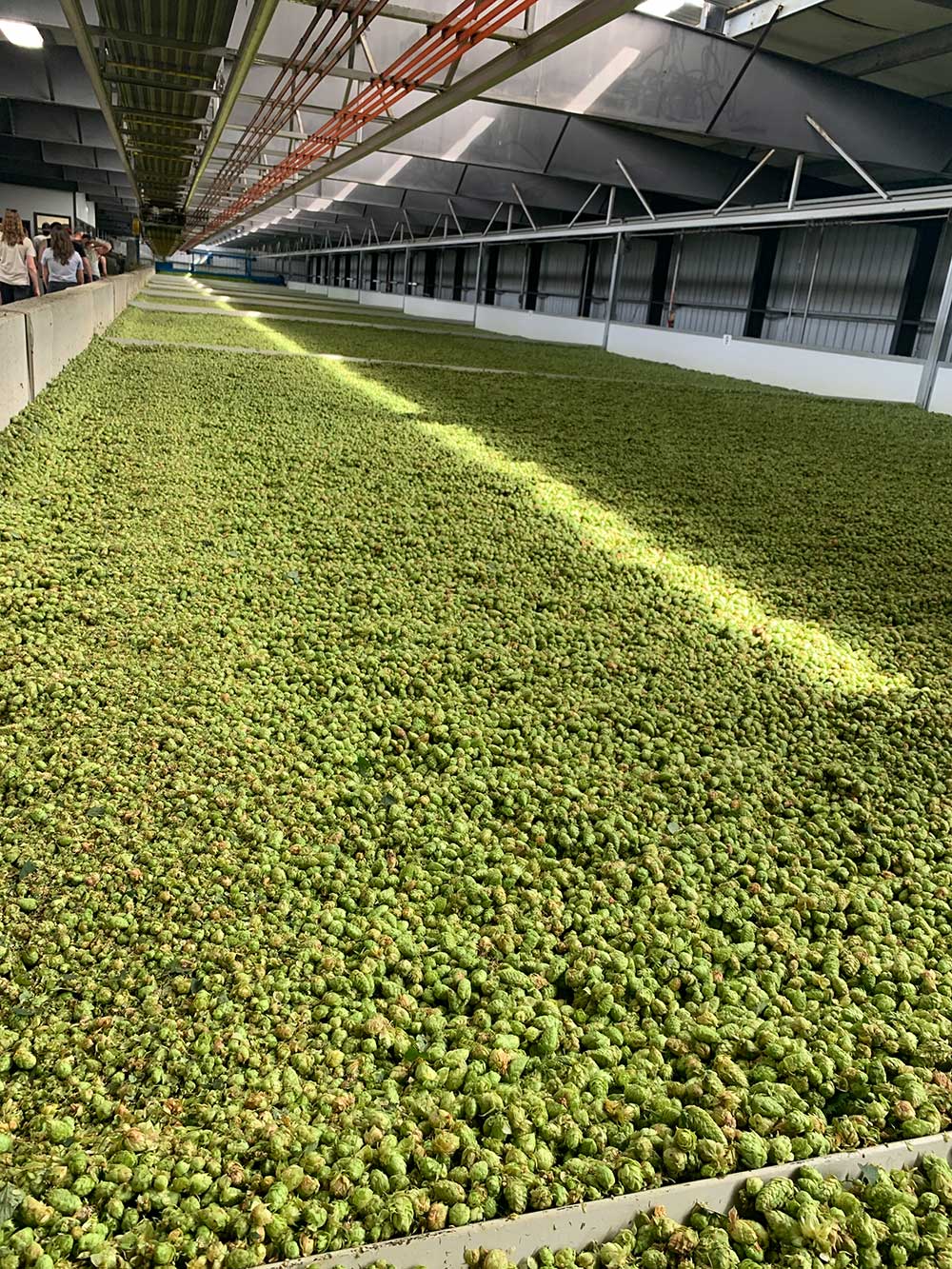 Loftus Ranches
Loftus Ranches
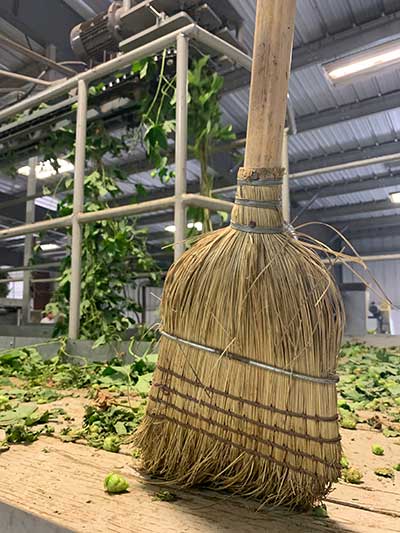 Several weeks before Peaks & Pints brewed TrailBreaker IPA on Bale Breaker’s Seattle system, Kevin Quinn, or just Quinn as he’s known, led us, and ironically, the Seattle Bale Breaker crew, on a tour of the Loftus facility in Moxee. The Ranch raises significant acreage of Simcoe, Citra, Palisade, Mosaic, Warrior, and Tomahawk in addition to several experimental hop varieties. Quinn led us through the hop fields explaining their growth cycle from spring buds to fall cones. How they climb the coir twines in a clockwise fashion reaching 18-feet high. As they reach the trellis tops, they generate lateral shoots that produce the hop flowers. A mature female hop is ready for harvest when the flower begins to feel dry and papery. Ready of harvest in September, bottom cutters snap the lower bines before the top cutters yank them into the combines.
Several weeks before Peaks & Pints brewed TrailBreaker IPA on Bale Breaker’s Seattle system, Kevin Quinn, or just Quinn as he’s known, led us, and ironically, the Seattle Bale Breaker crew, on a tour of the Loftus facility in Moxee. The Ranch raises significant acreage of Simcoe, Citra, Palisade, Mosaic, Warrior, and Tomahawk in addition to several experimental hop varieties. Quinn led us through the hop fields explaining their growth cycle from spring buds to fall cones. How they climb the coir twines in a clockwise fashion reaching 18-feet high. As they reach the trellis tops, they generate lateral shoots that produce the hop flowers. A mature female hop is ready for harvest when the flower begins to feel dry and papery. Ready of harvest in September, bottom cutters snap the lower bines before the top cutters yank them into the combines.
Inside Loftus giant facilities, the hop cones are then separated from leaf and bine via multiple cleaning contraptions. Next, the hop cones are laid out on massive-sized kilns where they are heated until thoroughly dried. Dry hop cones are then piled high on cooling floors, which help maintain their color and essential oils. After drying, the hops are formed into pellets, which are usable for up to three years if stored properly (some dried hops are kept in cones, which last for about one year). Quinn explained wet hops are simply undried hops, which are exceptionally aromatic and have high levels of acidity and oil, resulting in beers with powerful earthy flavors. Fresh hops are kiln-dried and kept as whole cones (as opposed to the air drying and pelletizing standard hop process) imparting a “green,” grassy, fresh flavor and aroma to a brew. If not rushed to a brewery and brewed within 24-hours, the hop bails are transported to cold storage where they await processing.
Sustainability is one of Loftus Ranches’ core values. Four out of five building at their harvesting facility have solar panels blanketing the roofs. The panels generate 80-percent of the electrical needs.
Loftus Ranches also has ownership in Select Botanicals Group and the Hop Breeding Company.
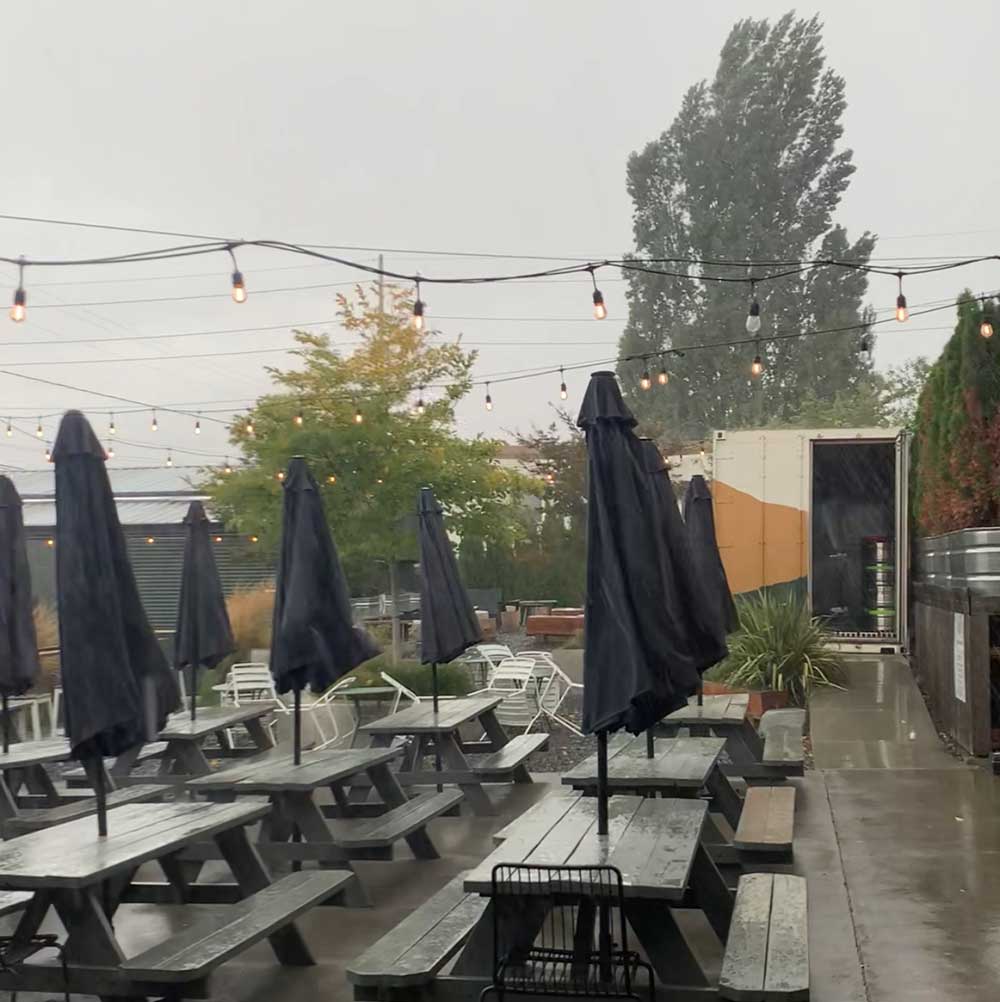
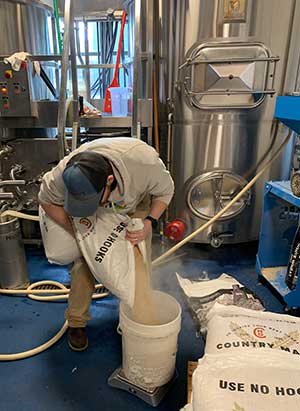
Bale Breaker TrailBreaker IPA
There were moments during the Bale Breaker brew day when we pondered calling the new house IPA, Drenched IPA. It was a cloud breaker of a day in Ballard. Several flash floods forced water into the Bale Breaker & Yonder Cider Taproom while we brewed the beer in the rear brewhouse. The storm made for spectacular viewing while we sipped Bale Breaker’s Fresh Hop Frenz IPA and waited for Ballard Head Brewer Bobby Buckman to give the thumbs up on the mash tun temp.
After six successful house IPA collaborations, Peaks & Pints was thrilled when Bale Breaker agreed to brew our seventh old school, citrus and pine IPA for Tap #16 on our Western red cedar tap log. Another trailbreaker thought came to fruition when we brewed TrailBreaker IPA on Bale Breaker’s small system in Seattle allowing us to have fresh beer monthly instead of fresh quarterly like the six previous versions.
It was a hands-on brew day complete with stirring the Dark Munich and others malts with a red paddle. Buckman let us mash-in and mash-out while explaining the science behind mash conversion as we sipped their Homegrown Fresh Hop IPA. The conversion process uses natural enzymes in the malt to break the malt’s starch down into sugars. A 90-minute window allowed us we pair breakfast sandwiches with Just This Once IPA and more storm viewing. Bale Breaker’s Western Washington Sales Manager Sara Verdieck joined us for the brew day.
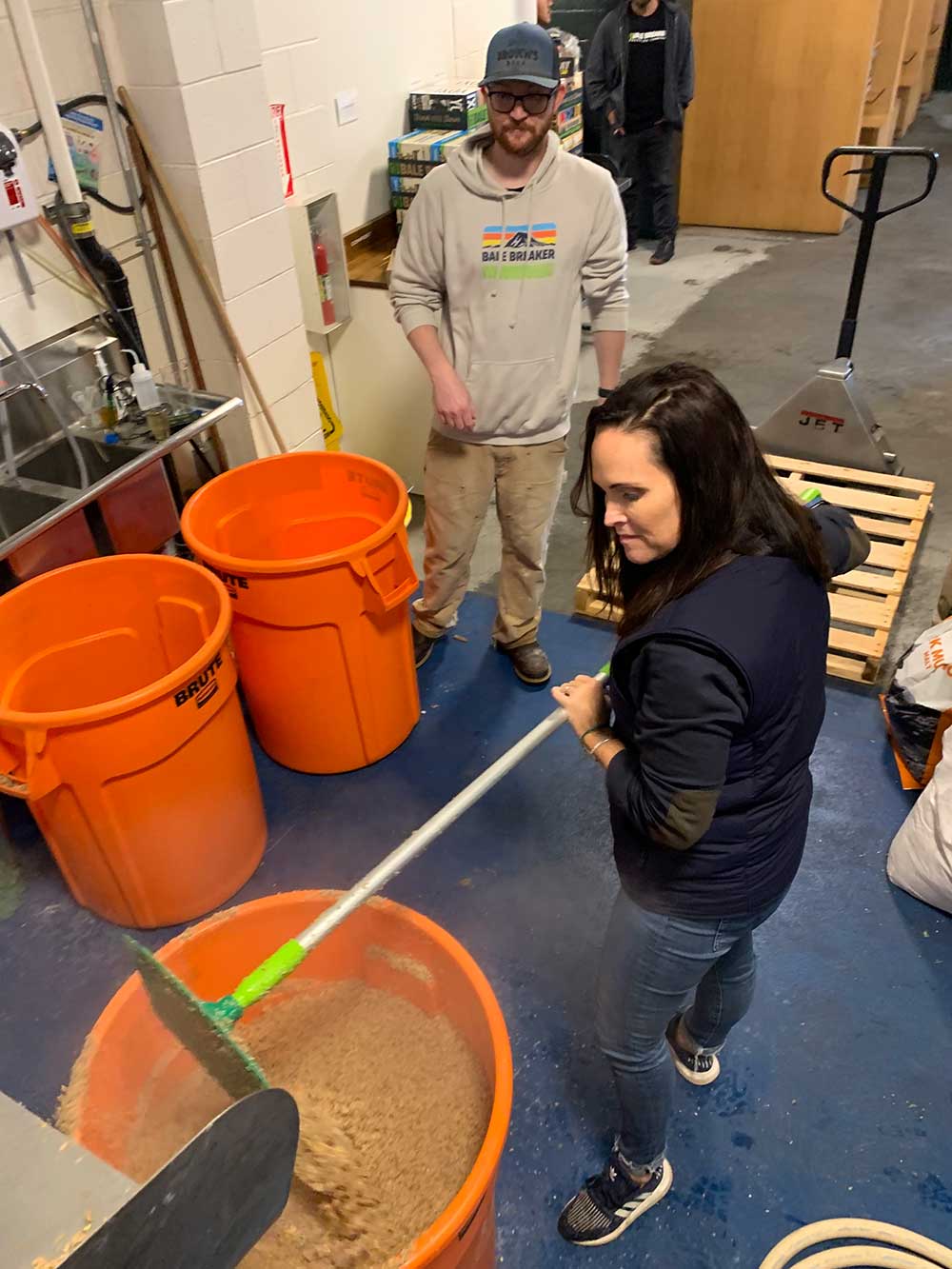
The mash is then pumped into the lauter tun, where a sweet liquid (known as wort) is separated from the grain husks. The wort is then collected in a vessel called a kettle, where it is brought to a controlled boil before the hops are added. We measured the gravity, weighed the Simcoe, Cryo Citra and Cascade hops, mashed out the grains, and washed the mash tun while enjoying their Early Arrival Fresh Hop IPA and Holy Weta NZ IPA.
We left the yeast pitch and dry hopping to Buckman. Yeast converts the sugary wort into beer by producing alcohol, a wide range of flavors, and carbon dioxide (used later in the process to give TrailBreaker its sparkle). After fermentation, the young “green” TrailBreaker needs to be matured to allow both a full development of flavors and a smooth finish before tapped Nov. 1 at our seventh anniversary party.
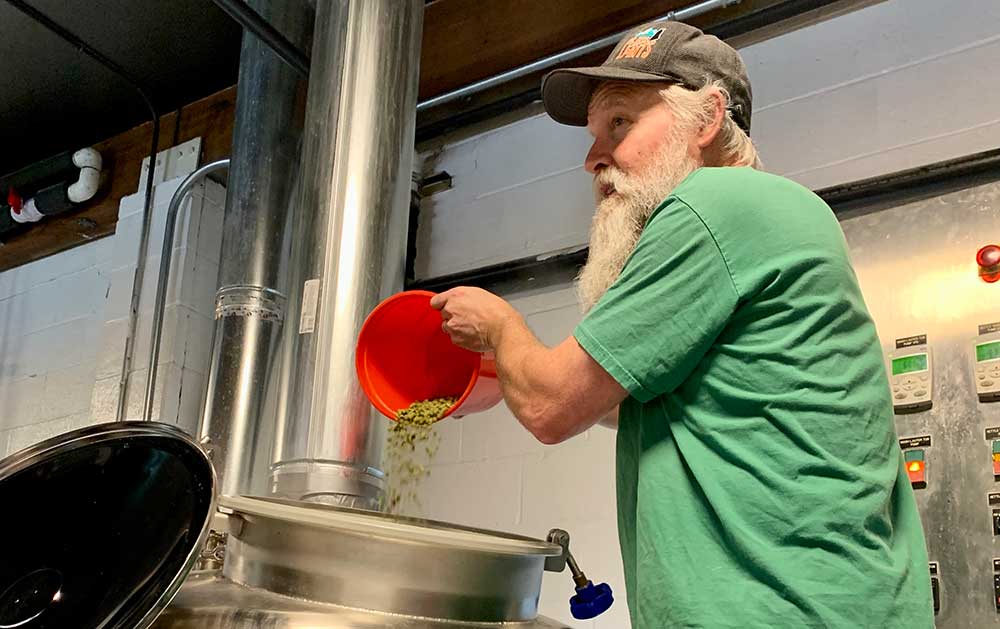
Peaks and Pints Seventh Anniversary
Join Peaks & Pints Wednesday, Nov. 1, as we celebrate our seventh anniversary with the release of our new house beer, Bale Breaker TrailBreaker IPA, the release of our new house dry cider, 2 Towns Ciderhouse RiverBreaker, and an intimate concert with The Barleywine Revue bluegrass band in our event room. Peaks & Pints will tap a few other Bale Breaker and 2 Towns delights, as well as many treasures from our cellar, beginning at 6 p.m. There isn’t an admission fee for this event.
LINK: Peaks and Pints Seventh Anniversary Celebration
